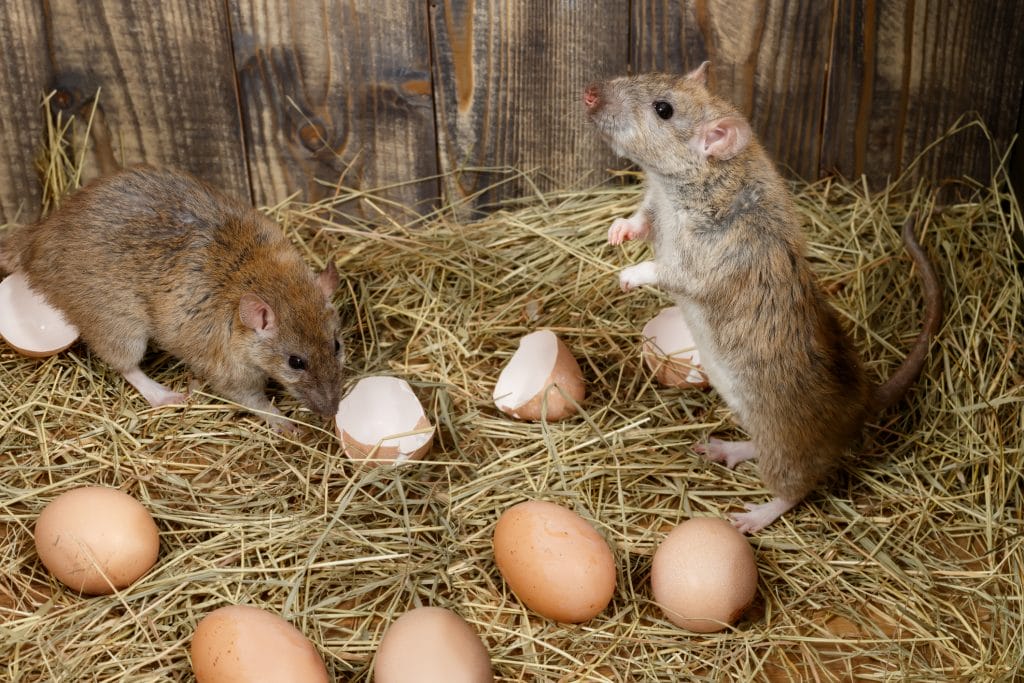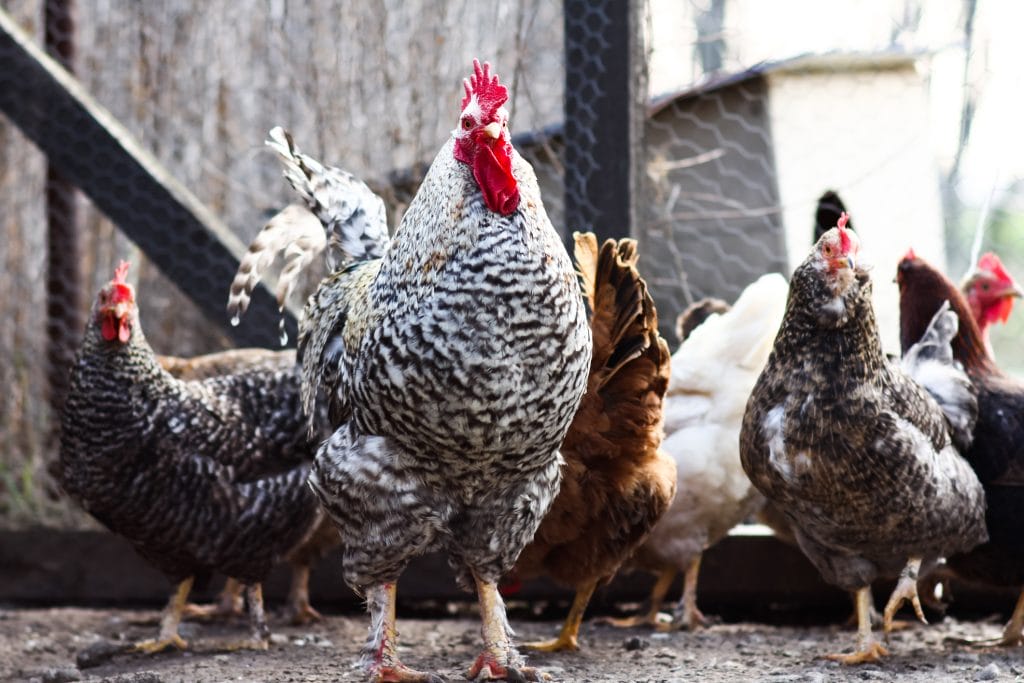Chickens have the instinct to roost, and generally speaking, provided you’ve trained them to do so, they will willingly enter their chicken house every night. Not only does this habit give your chickens’ day a consistent structure, but it can also give you, as a chicken owner, peace of mind that they’re safe from predators at night.
So, what happens when you find your chickens sleeping outside their chicken coop? There are several potential causes as to why hens choose to sleep outside of their chicken coops, but the good news is, the issue is easily fixed with the right approach.
If you’re currently experiencing issues with your chickens roosting outside their coop, don’t worry. Keep reading to learn more about what might be causing the sudden behaviour change and how you can address it.
Why are my Chickens Sleeping Outside?
Several factors could be at play, but the first thing to note is that this is a very common problem and one that many chicken owners deal with from time to time. Whatever the reason, there’s usually an easy solution.
That being said, it’s important you take action immediately because chickens choosing to roost outside of their coop by sitting on top of it or somewhere else in the vicinity of it is counterintuitive to raising hens. It’s not a natural instinct and could actually impact the health of the chickens. Failure to roost in a coop could result in:
- Attacks from predators such as foxes, causing injuries or even death.
- Infections that could sweep through the group.
- Loss of eggs as your flock are not in their nest to lay.
Now you know the risks of chickens roosting outside their house, let’s look at some of the most common reasons they are choosing to spend the night away from the coop.
1. Unclean coop
Chickens are often labelled as dirty birds, but this isn’t the case. However, chicken’s faeces can produce a strong smell of ammonia when left to build up. This is not only unpleasant for humans, but it’s unpleasant for the hens, too. Their sense of smell is just as good as ours, except they’re closer to the ground so will likely feel the impacts of ammonia far more than you. If you can smell ammonia and your chickens are roosting elsewhere, this is likely the cause.
2. Unfit coop
In addition to an unclean coop, an unfit coop may also be forcing your birds out at night. A good chicken coop should have plenty of ventilation to keep the air quality high, as well as a perch for the birds to sit on to avoid sitting in their droppings on the floor. With this in mind, make sure the chicken house you choose is big enough, with a perch and lots of ventilation.
3. Predator in the coop
Another main reason a chicken will choose to abandon their coop is that a predator may be gaining access. If your chickens feel unsafe, they’ll naturally seek somewhere else to roost.

4. Disharmony in the group
Chickens tend to have a hierarchy in their group, and being the lowest ranking can result in harsh bullying. A chicken experiencing this may opt to roost outside to avoid incessant pecking and plucking.
5. Frequent coop moving
Chickens can get confused when the location of their coop changes regularly. If you tend to move your chicken house around regularly, this could be causing the hens to get muddled, hence why they’re choosing to sleep outside.
How Do I Get My Chickens to Roost if Ammonia is the Problem?
If you think a build-up of ammonia is the issue forcing your hens outside, you’ll need to work on cleaning your coop. Maintaining chicken houses doesn’t require a daily deep clean with a sanitiser, but you will need to regularly remove the build-up and ensure there isn’t a strong smell of ammonia.
To clean the coop, remove litter and debris such as feathers, use a natural spray like vinegar to neutralise the area, and use a hose to rinse the area. It’s also best to leave the coop open to allow the smell to dissipate. Finally, you can use a natural clay litter to bind the ammonia. If the issue persists, you may need a bigger coop.
How Do I Make Sure My Coop Is Fit For Purpose?
If you think your chickens are resting outside because the coop isn’t fit for purpose, consider buying a new one that is bigger and that has improved ventilation and perches. Browse our selection and find out more about the type of chicken house that is best for your flock.
How Do I Prevent Predators From Entering My Coop?
Should a predator or a rat be the issue forcing your hens out, it’s relatively easy to fix. Make sure you check the structural integrity of your coop and fix any small holes or wire issues. This will ensure nothing nasty like a fox or rat gets in the coop and causes upset. Also, consider other security measures such as the fencing around your garden.
How Do I Reduce Disharmony In The Flock?
If you think one of your hens has been bullied out of the coop, the best thing you can do is to separate the hen doing the bullying and give them time in a separate enclosure. Your chickens may also be pecking each other because they can’t dust bath or peck the ground, or don’t have enough space in their coop. A great idea is to spread toys or wood shavings across the pen for your feathered friends to peck at.
How Do I Prevent Coop Confusion?
The final solution to getting your chickens to sleep inside their coop is to ensure you’re not moving it frequently and causing confusion. Once it’s placed in its spot, keep it there and don’t move it unless absolutely necessary.
Summary
Your chickens must sleep inside their coop for their wellbeing and safety. We hope these tips help you figure out what may be causing your hens to sleep outside, and what you can do to get them back inside where it’s safe. If you need a new chicken house for your feathered friends, get in touch with our dedicated team today.
At Eggshell Online, we design and build chicken coops and houses that help keep your birds happy and healthy all year round. Explore our variety of coops, give us a call on 01903 756121 or fill in an enquiry form with any question you have.

